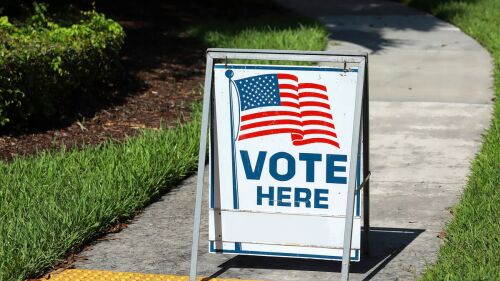By Valerie Wells
Herald & Review
HARRISTOWN, Ill. — Harristown voters approved both the tax increases on the ballot to support the Harristown Fire Protection District.
The fire department, all volunteers, had not had a tax increase since 1982. One of the two increases, .10% per $100,000 of equalized assessed valuation, will fund emergency medical services, which Chief Mark Nixon said is the majority of the calls they receive. The other tax increase, also .10%, will increase taxes from .30% to .40% for fire services.
Unofficial results are 241 in favor of the increase for emergency medical services, with 166 voting no; and 256 in favor of increasing taxes for fire protection, with 147 voting no.
“We’re very pleased the community supported us in this,” Nixon said.
The funds will help the department with equipment and technology upgrades; recruitment and retention of skilled personnel; and infrastructure and facility maintenance. Emergency medical services had not had a budget of its own previously, with funds coming out of the fire protection district’s budget to support that side of the services.
The increase will not kick in until next year, Nixon said, and will be in the fire protection district’s hands in July 2025.
“We have plans,” he said. “Right now, we just have several ideas to get taken care of, and now that we’ve got this coming in next year, we’re able to breathe easier and increase equipment and response needs and take care of buildings and grounds at the fire station.”
(c)2024 the Herald & Review (Decatur, Ill.)
Visit the Herald & Review (Decatur, Ill.) at www.herald-review.com
Distributed by Tribune Content Agency, LLC.















